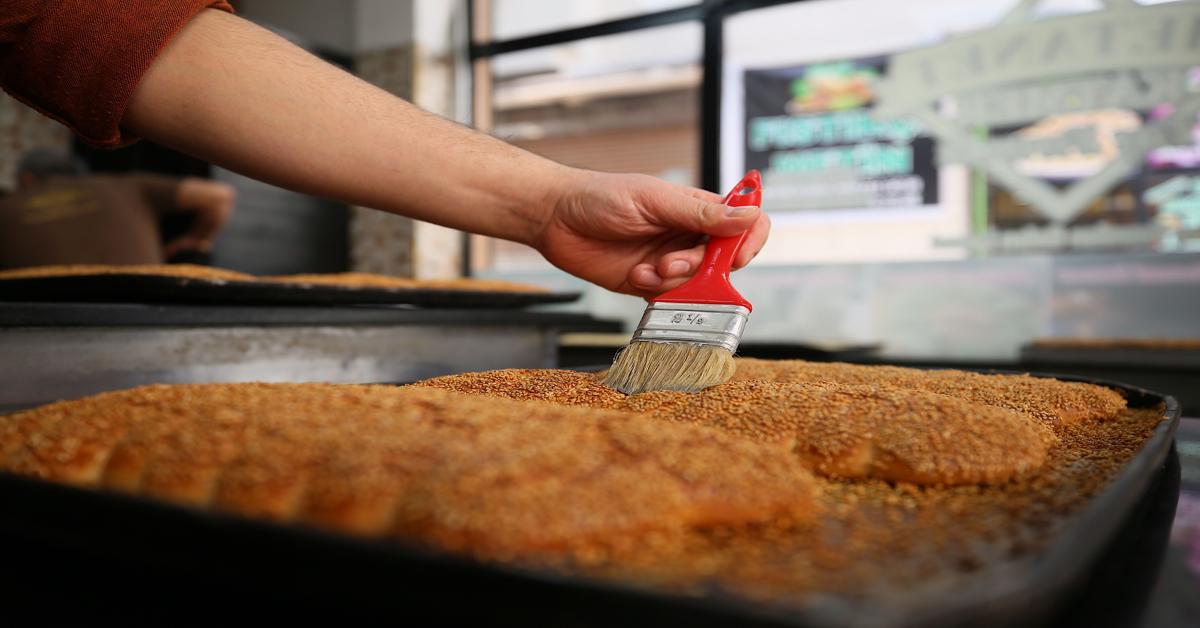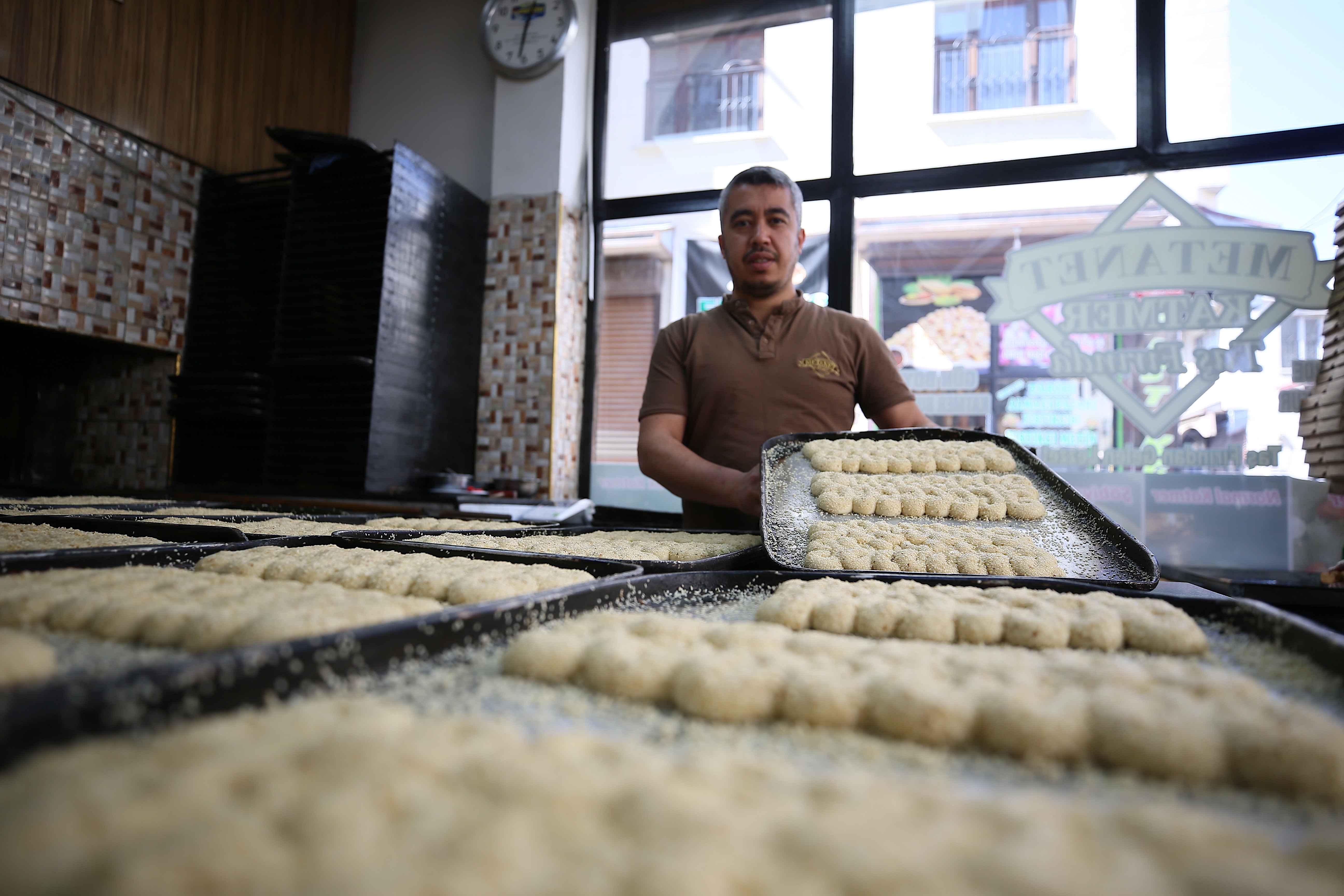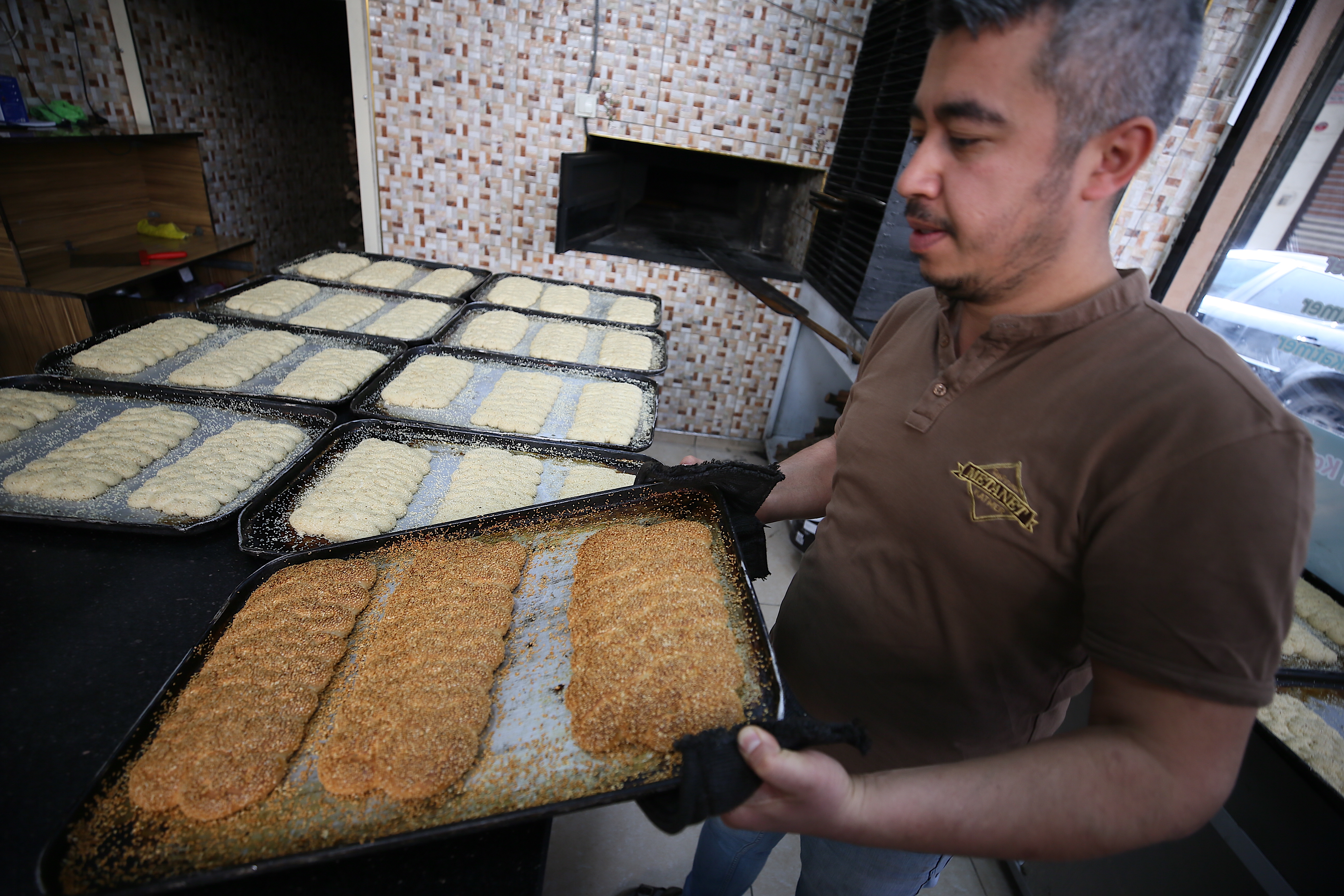
Gaziantep's beloved Ramadan kahkesi, a pastry specially made for the holy month, begins gracing iftar tables
Gaziantep, the city renowned for its culinary delights, has begun selling its highly anticipated "Ramadan Kahkesi" after an 11-month wait. Street vendors are now offering this special Ramadan treat.
Gaziantep, known as Türkiye's first gastronomy city, boasts a vibrant culinary scene, especially during Ramadan. Kahke masters, the preservers of a cherished tradition, bring their highly anticipated flavors to the iftar table. Early each morning, starting at 8 a.m., these skilled artisans begin their craft by combining flour, sugar, olive oil, and mahaleb in the mixing bowl.

After resting for a while, the dough is shaped into a ring. Then sprinkled with plenty of sesame seeds and smeared with egg white and baked in the oven, Ramadan kahkesi is offered for sale close to the time of the call to prayer.
Every Ramadan, Gaziantep locals eagerly await a special treat that's only available during this holy month. Long lines form outside shops as bakeries stock up on this cherished delicacy, a tradition they've anticipated for the past 11 months.

Gultekin Babacan, a second-generation simit maker in Gaziantep, told Anadolu Agency correspondent that they have been producing this treat for half a century.
Stating that Ramadan kahke has an important place for the city, Babacan said:
"Kahke is not produced for 11 months, it is only produced during Ramadan. It is on the stalls for one month. All our artisan friends make it and customers line up an hour before the call to prayer. We waited and struggled a lot in our childhood to get our hands on this special treat, and this tradition continues today. We are proud of this flavor. Our aim is to pass this culinary delight to the next generations. It is produced as a traditional flavor during Ramadan in Gaziantep. It is a must on our table during Ramadan."

Ramadan kahkes are a beloved tradition in the city. They are a staple on tables throughout the holy month, and their unique flavor is considered emblematic of Ramadan.
Source: AA